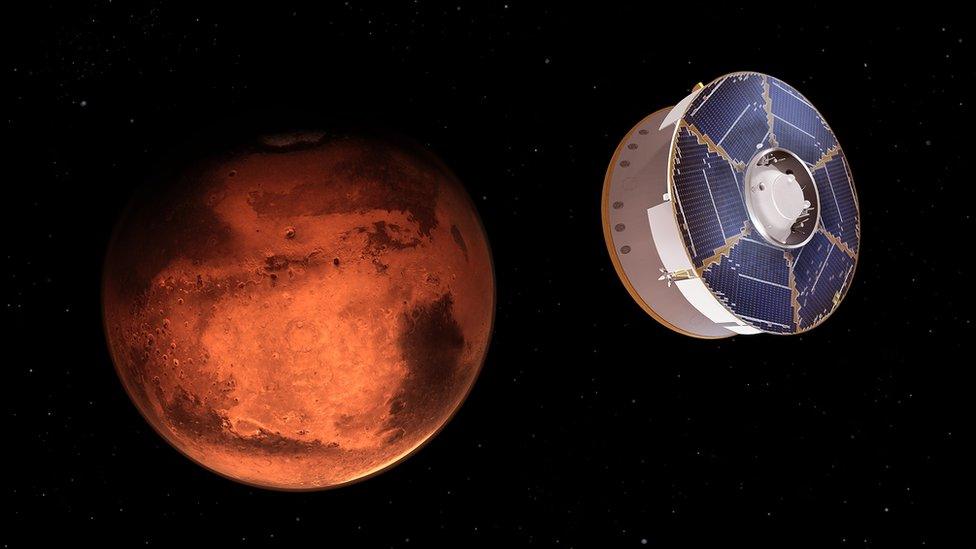Perseverance: Mars rover finds way to get oxygen from planet's atmosphere
- Published
- comments

Perseverance approaches Mars
Nasa's Perseverance rover has managed to extract enough oxygen from the air on Mars for a human to be able to breathe for roughly 10 minutes.
The planet's atmosphere is 96 percent carbon dioxide, with oxygen making up only 0.13 percent.
The Earth's atmosphere is 21 percent oxygen.
The amazing experiment was carried out by a toaster-sized unit in the rover called Moxie, the Mars Oxygen In-Situ Resource Utilization Experiment.
Nasa is hoping that in the future, people sent on missions to the Red Planet would take scaled-up versions of Moxie with them rather than trying to carry all the oxygen needed to survive from Earth .
Moxie is able to strip oxygen atoms from COв‚‚ molecules, which are made up of one carbon atom and two oxygen atoms. The waste product is carbon monoxide, which is released into the Martian atmosphere.
This time Moxie managed to produce five grams of the gas, but the Nasa team behind it is running the unit in different modes to discover how well it works.
The expectation is that it can produce up to 10 grams of Oв‚‚ per hour.
It's a massive step forward for science and space, and will be of great excitement to those who are hoping for the first humans to be able to settle on Mars in the near future.
The MOXIE unit being lowered into the rover before it went into space
"Moxie isn't just the first instrument to produce oxygen on another world, it's the first technology of its kind that will help future missions 'live off the land', using elements of another world's environment, also known as in-situ resource utilisation," said Trudy Kortes, director of technology demonstrations within Nasa's Space Technology Mission Directorate.
This same process can also be used to convert unusable materials into useable things like propellants and water.
Oxygen (Oв‚‚) is also an integral part of the chemistry that propels a rocket. Thrust is achieved by burning a fuel in the presence of an oxidiser, which could be simple oxygen.
It's the second big success this week for the mission, which flew a mini-helicopter on Monday.
The mini-chopper made history by performing the first powered, controlled flight by an aircraft on another world.
- Published24 March 2021
- Published24 May 2020
- Published29 August 2016
